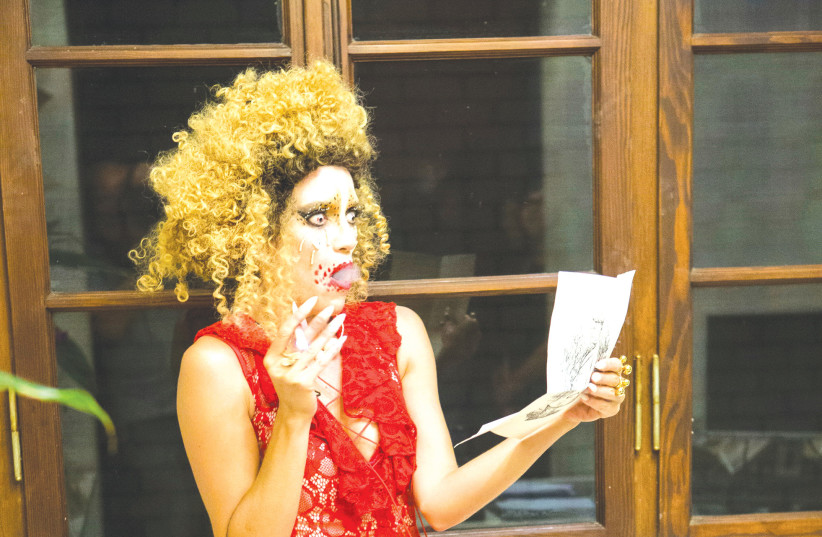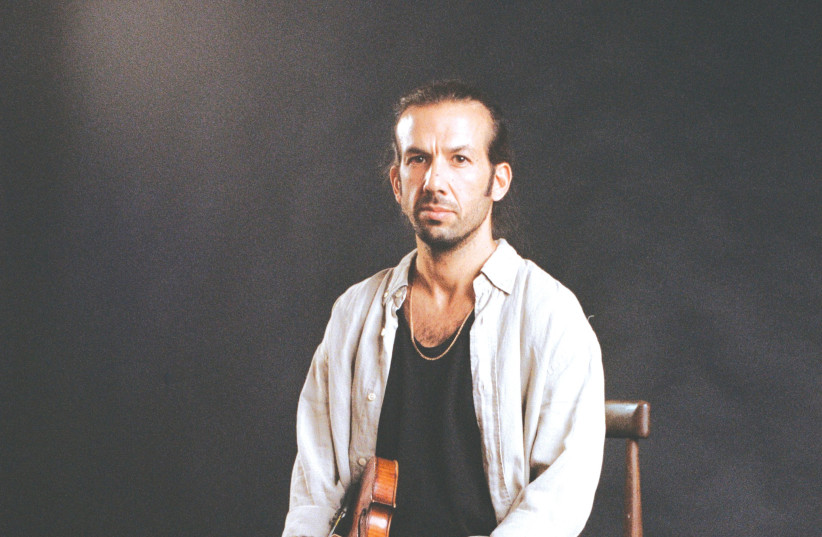The poetic genius of Hayim Nahman Bialik, Israel’s national poet, will be celebrated this Wednesday with a festive evening concert held at Heichal HaTarbut in Tel Aviv. The rich and diverse performance includes some of the best-known names in popular music, from the groovy blues of Ester Rada to the Jazz of Alon Oleartchik and to the rap music of Teddy Neguse.
Selected as the opening concert of the three days Niggunim Betzedek Alternative Jewish Festival, Bialik is a cultural titan who offers great promise, as well as difficulties.
“Niggunim Betzedek often disrupts Israeli-ness,” Artistic Director of the Israeli Andalusian Orchestra Ashdod Elad Levi told the Jerusalem Post. “They try all sorts of innovative ways to formulate a new Israeli-ness or express the Israeli culture we have today.”
To assist patrons on this delightful musical journey, actors from Clipa Theater will portray various figures from Bialik’s life and offer a textual context for the works performed.
Who was Bialik?

Bialik had immense importance as a champion of Hebrew culture in his day and age. He gathered Jewish treasures in his 1903 Sefer HaAggadah to help modern readers gain insight into the richness of the Talmud. He was a creative genius, who gifted Israelis with a variety of new words, from rustle (Hebrew: rishroosh) to airplane (Hebrew: matos).
The great poet also attracted mass audiences for his series of lively talks titled Oneg Shabbat held on most weekends for decades at the first Hebrew city from the late 1920s onwards. The clear, sweet voice of Nechama Hendel in her 1965 record of poems by Bialik is equal to the brilliant American folk revival music created by Joan Baez or Odetta Holmes.
It is also six decades old.
Hendel, born in Poland, sang the poems in the correct Ashkenazi pronunciation, as they were originally written by Bialik. The poet Shaul Tchernichovsky argued that “a poem must be heard with the same accent and melody that the poet himself employed. If not,” he warned, “all its charm and half its beauty will be lost.”
Yet, in this country, the decision was to speak Hebrew in the Sephardic intonation, not the Ashkenazi form. The effect of this major decision had been the Ashkenazi accent seems outdated, old and detached from the reality of the Middle East. This colors the perception of Bialik’s poetic work in a false shade.
What is his work like?
BIALIK HIMSELF was not blind to this, and actively encouraged musicians and educators to find ways to adapt his works to the new national way, yet his work is further damaged by another unfortunate factor – school.
Hailed as the national poet, Bialik is often taught in classrooms as the poet of Jewish destiny in the Diaspora, which usually refers to Europe. Some of his most powerful works, 1904 In the City of Slaughter, or HaMatmid (1901), one a reaction to the 1903 Kishinev pogrom and the other a loving, yet critical, description of a traditional Torah-oriented life, branded Bialik in the mind of most Israelis as a poet of extremes. Either he is the poet of Jewish pain and loss, a prefiguration of the Holocaust, or he is the poet of cute songs for kindergarten children – of which he wrote many.

“In my opinion, the true root of Bialik’s work is not Europe but Judaism,” Levi said, “it is this root which must be exposed for the benefit of the society we now have.”
Describing the Hebrew literary scene active in Morocco in the early 20th century, which included Rabbi David Bozaglo and Rabbi David Elkyam. Levi argued that despite their great talent “these people were not here and if they did arrive,” Bozaglo made Aliyah in 1965, “the state was not there for them. The idea was that one group, which is the Mizrahi Jewish collective, should throw itself into the melting pot” of Zionism.
Elkyam, for example, was such a strong champion of Hebrew revival he published articles in the Warsaw-printed Hebrew newspaper Ha-Tsfira. Making him a contemporary of Bialik, even if their respective impacts were vastly different.
Levi told the Post he is in no way against Western music but wishes to point out that “many cultures are high,” not just one.
“Take a look at Persian music,” he pointed out, “or Othman music, they too are highly complex and rich.”
“In my view,” he added, “just as Israel is a diverse society, the like of which does not exist anywhere else, we can decide to have our own standards of what consists high culture.”
How to make high culture accessible? When requested by Bialik House to tackle this question, the artistic directors of Clipa Theater Idit Herman and Ariel Bronze crafted a stunning immersive theater experience titled Anybody Home?
The core of the experience was that Bialik himself is gone, and visitors to his former house were met by various people who had a personal relationship with him. Originally performed in 2017, the show was partly revived and adapted for this one-night concert.
“Through these characters,” Herman explained, “we can understand the depth and greatness of Bialik.”
“As well as the love,” she added, “it is visible how much they loved him.”
LIKE TCHERNICHOVSKY, Levi believes language stands at the heart of the poetic experience.
“When you read the texts,” he said, “things come together. In our orchestra, we have musicians who made Aliyah from the former USSR and not all of them have an easy time reading Bialik. Yet these same artists insisted I give them the text, their reason was that it is obligatory to arrive at the musical solution through the original poetry.”
“So yeah,” he laughs, “we did not choose ‘In the City of Slaughter’, instead we selected ‘She Sits by the Window’, a love poem which is a universal human situation.”
This particular work was set to music by Miki Gavrielov and sung by Arik Einstein in his 1980 album Armed with Glasses. For Levi, it is important to note that many Hebrew poets were set to music in a manner that harks back to the values of “Good Old Eretz Yisrael”, a mythical time when secular Ashkenazi culture felt it was both the majority culture, as well as the way to the future. Jews from Muslim countries and Haredi Jews, after all, were meant to assimilate and progress. This did not exactly happen, but is that really such a bad thing?
When one listens to Sholamit Aharon sing “The Flocks Drank” by Alexander Penn or Ofir Ben Shitrit performs Penn’s “The White Stork”, both with the Israeli Andalusian Orchestra Ashdod, one does not necessarily pluck his own hair in anguish. After all, did not Nahum Nardi himself set “The Flocks Drank” to music with a generous contribution from a local Arab tune?
“In 2022,” Herman concluded, “all that art can offer Israel is consolation.”
HaKochavim Rimo Oti [The Stars Have Cheated Me], a special concert honoring the 150th birthday of National Poet Hayim Nahman Bialik will take place on Wednesday, December 14, at 8:30 p.m. Tickets are from NIS 159 to NIS 279 per ticket. Dial *2207 to book. The concert is at Heichal HaTarbut, 2 Huberman St., Tel Aviv. The three days Niggunim Betzedek festival offers a variety of Hebrew events. For more detailes, visit: https://www.nigunim-tzedek.co.il/
